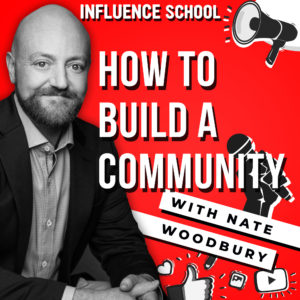
Download Now!
One of the most important things to consider when managing your online brand is building a community for that brand. Not many people know what to do with their followers and consumers which is why Nate and Valerie will discuss the importance of communities, how to distinguish what type of community you need, and how to handle these types of communities.
So, you’ve heard me talk a lot about building a massive following on YouTube. Because that’s what we do here. Valerie is the expert on influence. She wrote the book on influence. I’ll talk about this later. So, I wanted to get her input because she has a lot of information in there. About building a community? So, that’s we’re going to talk about today. Okay. So, I understand building of the community from a YouTube standpoint. Maybe this is an internet marketing standpoint. Where are we coming at it from your perspective? How do you build a community? -So, when I think of communities, I typically like to think about followings. But in terms of digital marketing, oftentimes that… Often times that following can be very broad and could be maybe people who are fans and consume your free stuff. But then you also might have other sub-communities of people that have maybe opted into certain programs. And Facebook groups are really popular way of segmenting out those different audiences and those different communities. And those can be very strategic. You know, you opt in to a certain program and you get access to a specific Facebook group just for that community. -Okay. So, how do you know if you just need one community or if you need multiple? -I think when you’re thinking about building your community, you need to go back to ultimately your community’s needs. If your community has the need for specific offerings and specific programs and you have the capacity to build that out. I think it’s definitely worthwhile to make those segmented communities. But you have to start off and make sure that you know what your community needs. What questions are they asking? What are their biggest needs? What are their biggest pain points? When you can identify all of those things, you really have a way to target and speak to that community. So, if you’re building a YouTube channel and you’re growing a large global community, you’re going to… You’re going to figure out what their needs are based on the comments, based on the keyword research. We’re doing the don’t find out the topics of these videos. But then let’s say I also have a group that supports me on Patreon or if I create a Facebook group. Do each of these have different needs? -I think it all depends on how you set it up and how you structure it. Sometimes those are a little disjointed but I think if your business model is very focused and targeted to the right people. Those different groups are often going to speak to each other. And there’s probably going to be some overlap in those groups. -So, when you have a community, what do we need to do to make sure that our community stays strong? -So, one of the best things that you can do as you’re building your community out is to provide consistent value to them. So, I’m of the belief that you can never provide too much value to someone. And I think it’s important to remember. And I think we’ve talked about this a few times with YouTube videos. That not everyone is going to consume all of your content. They may pick and choose a couple of your videos that they catch. They may only see a few of your social media posts. Because of the algorithms. And because we’re busy people. Some people might binge watch all of your videos. I’m sure you’ve got those people out there. And I’m sure there are some people who really you know, they’ve made their settings so that they do not miss a single post. But the reality is that most people are moving in a lot of different directions. And so, you want to make sure you’re providing more value than you ever promised. So, over deliver on what you promised to people as far as value goes. Whether you ever stated that publicly or not. Just provide value on a consistent basis and provide excellent value. So, that gives people a reason to keep following you and keep being part of that tribe or allows people to keep being part of that community. And ultimately that community is full of all of your followers. So, the more you provide that consistent value to them, the more they are going to become spokespeople for your brand. So, you’re going to have people talking about you and encouraging their friends to go follow you as well. -Okay. Very cool. One thing that I’ve seen is some communities are very safe and other communities or groups are not so. Where people aren’t will to really be open or share really give advice. What’s… What’s the difference there? -Well, I think you as the owner of the profile, you have the ability to kind of set the tone. So, you can make some policies just whether you stink them or not of whether you’re going to engage with trolls. Trolls show up on YouTube all the time. You know that. Trolls show up on every social media platform. And you can choose to pay attention to their comments or you can ignore them. Or you can delete them. I’ve seen in many Facebook communities and Facebook groups where people flat out say, “These are the rules. You have one warning and if you violate it again, you’re out of the group. There’s no playing around. And what’s nice about that is if you set that tone, people feel safer to open up and share things because a lot of times, that’s very scary. They might be sharing some vulnerable information or asking a question that they’re worried might sound silly in a community. Whether it’s something in Patreon. It’s a group on Facebook or it’s some other forum, if you’ve created a culture where it’s okay to ask those silly questions, it’s okay to look stupid sometimes. It’s okay for to ask maybe a dumb question that everyone else in the room knows but you. If you create that culture, you’re really gonna promote more and more engagement in the group versus a space where people feel afraid to make a comment because someone will shut them down. It reminds me of when I was you know, younger and in school and the right teachers would create an environment that questions were good that there’s no bad questions. We’ve heard that phrase. -Right. -And… And that encourages more questions to come out and that we don’t have to be judgmental of those questions or can I ask this one is it going to be laughed at. That makes a lot of sense. -Yeah. I think just being cognizant of the fact that that this is something you have to be intentional about when you’re building online communities is so important. Because a lot of times you don’t have that face-to-face understanding with someone. It’s very easy for someone to hide behind a profile. And they can feel very insecure or they can feel very afraid to really open up. And you know, the more you can open up those lines of communication the better off your community will be. So, if I’ve got a community, let’s just say for simplicity it’s a Facebook group. And I want to kind of check the pulse not from my perspective but from the participants perspective. Is it better to do it maybe publicly in the group and do a survey or to reach out to people individually? What would you suggest? -So, in groups, if you take a poll using Facebook’s tool, a lot of times people can see what your response is. Now, if you do a poll on let’s say your personal Facebook profile, it’s not as easy for people to see what you voted for. The person who made the poll can see what the results are but the participants can’t. So, it’s a little strange that you may or may not decide you may decide to do one thing based on how you want people to see the results. But you can always do something like Survey Monkey or just a basic Google form that you can get that anonymous… Anonymous information from your group members where they know that it’s not being shared with anyone else. The other thing you can do is just take a pulse by sending private messages to different people in the group and asking them you know, how things are going? You know, take that pulse. One thing that feels a little sneaky which I don’t know if I want to endorse or not but it could be really helpful is to invite someone to join the group and ask them to ask specific questions that could be perceived as those stupid questions. And see how they are treating. -Interesting. -You could make a fake profile and do that too. But I think it’d be easier to just invite a friend. But it’s almost like secret shopping your group to see how does somebody feel about this group. Is it friendly? Is it welcoming? How is it? And get that third party perspective. -So thank you I appreciate being in this episode and sharing your expertise on building a following. Kind of from a different perspective because I’m always talking about the kind of the nuts and bolts of building it. But building good following and making sure people taking care of I really like that. So… -The reason I’ve invited Valerie to be in so many of these episodes is she’s written the book on influence. And that’s what this channel is all about is, is using tools like YouTube to build influence. So check out our book essentially again, We’re All Ears. You find it on Amazon. Be sure to subscribe and we’ll see you tomorrow.
